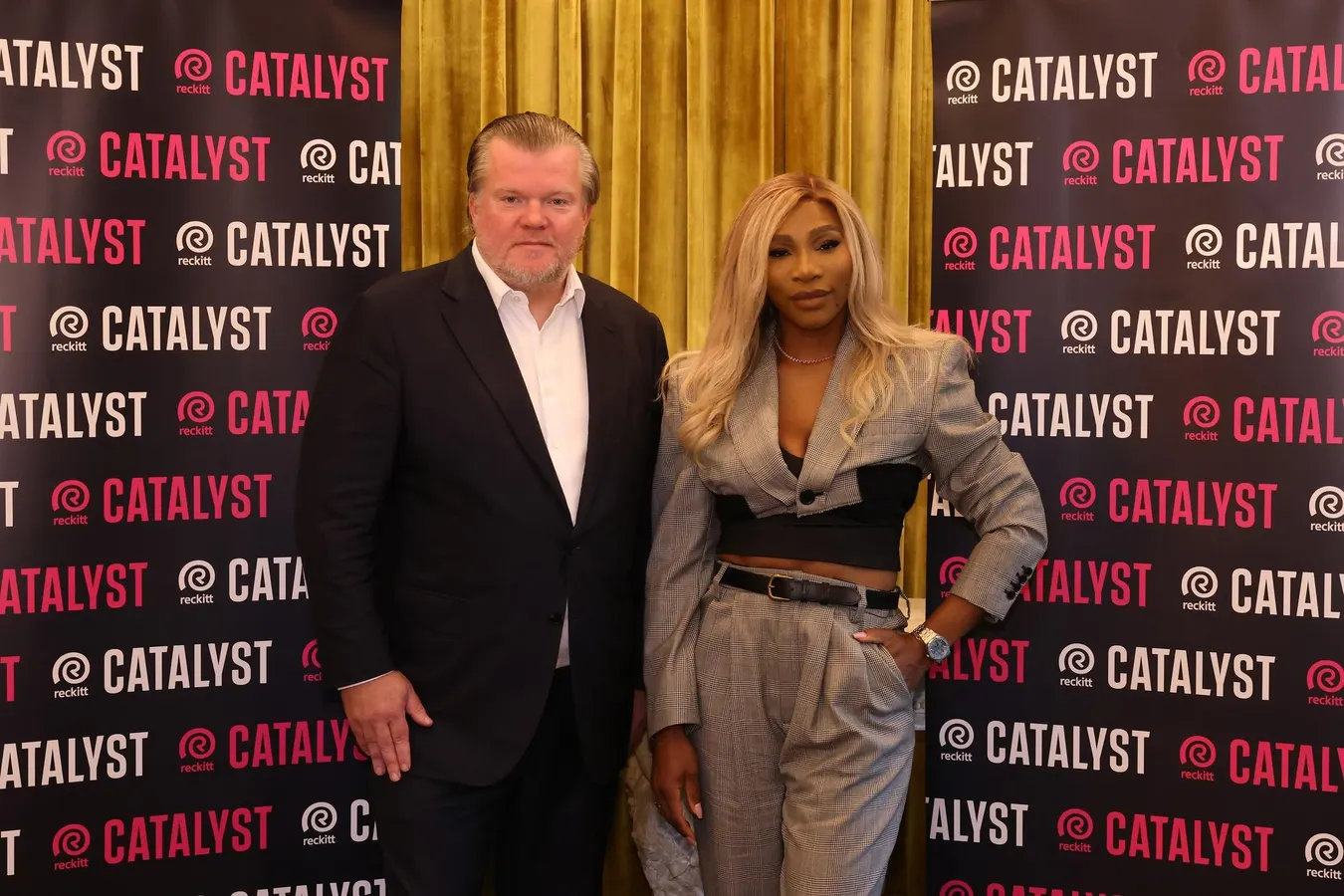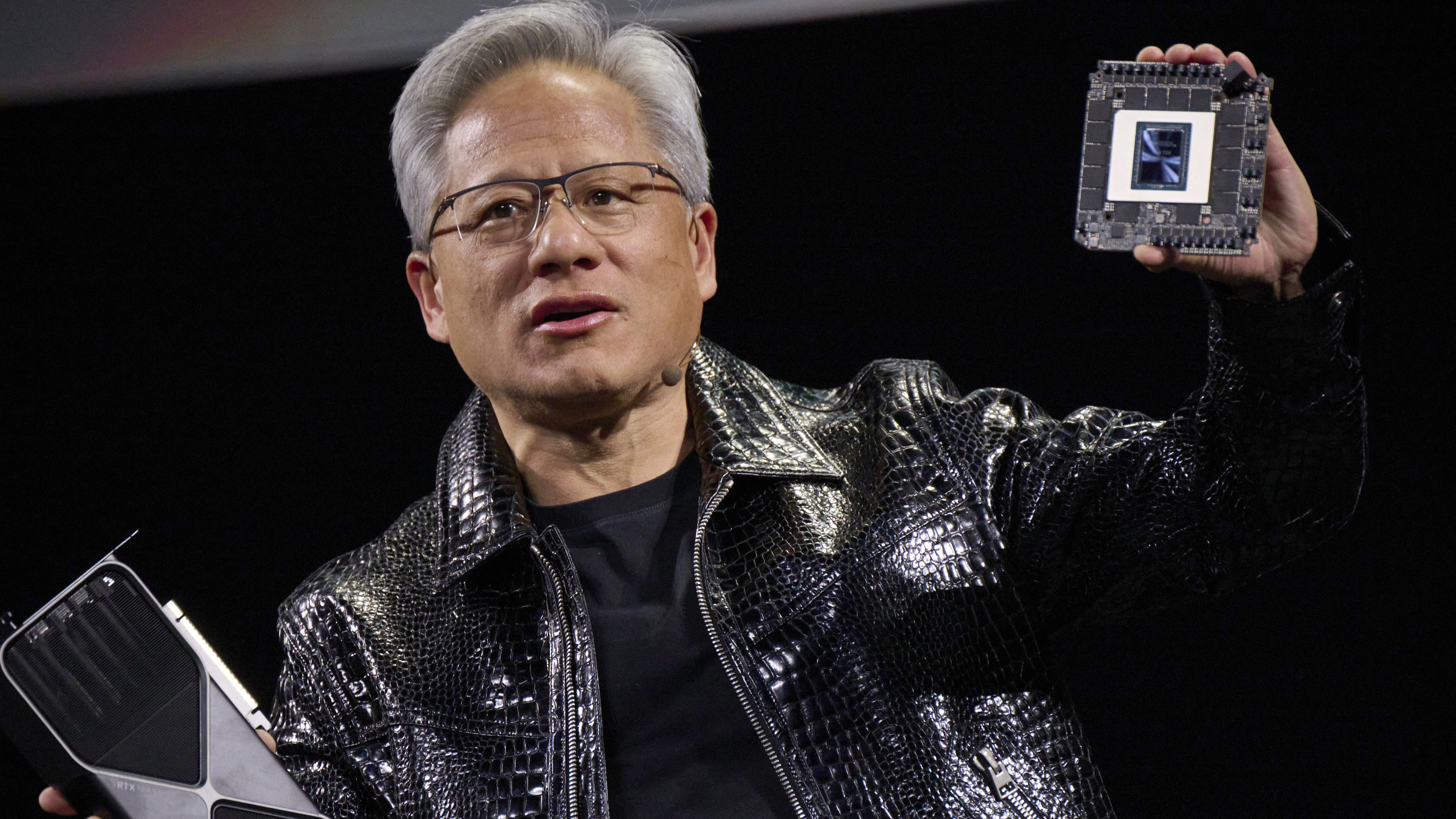By Contributor,Jennifer Jay Palumbo
Copyright forbes

As Reckitt’s Entrepreneur-in-Residence, Williams will mentor underrepresented health and hygiene founders as part of the program’s mission to support and scale 200 start-ups worldwide by 2030.
Jason DeCrow/AP Content Services for Reckitt Benckiser Group PLC
When Serena Williams steps onto a court, history tends to follow. Now, she is channeling that same tenacity into a different arena: health equity. This week in New York City, Williams joined Reckitt, the company behind trusted brands such as Lysol, Enfamil, and Mucinex, to announce the U.S. expansion of Catalyst, a social impact investment program designed to close gaps in access to healthcare and hygiene.
The program’s mission is ambitious. Reckitt Catalyst has pledged up to £10 million over five years to support 200 entrepreneurs worldwide, with a focus on women-led and underrepresented founders. The goal is to deliver health and hygiene solutions to five million people by 2030.
Kris Licht, CEO of Reckitt, put it plainly: “Through Reckitt Catalyst, we’re proud to extend our global commitment and, for the first time, bring our support for social entrepreneurs to the U.S. For nearly 200 years, Reckitt has worked to elevate health and hygiene standards, making a lasting impact in communities worldwide. At Reckitt, care is action. And when we act, we don’t just solve problems, we can be a catalyst for positive change that extends far beyond our products.”
Why Serena Said Yes to Healthcare Entrepreneurship
Williams, now serving as Catalyst’s first Entrepreneur-in-Residence, is no stranger to backing bold ideas. Since launching her own venture capital fund, she has invested in early-stage companies that touch technology, lifestyle, and health. What drew her to Reckitt was its track record and global reach.
MIAMI, FLORIDA – APRIL 7: Serena Williams, professional tennis player, and businesswoman, speaks during the Bitcoin 2022 Conference at the Miami Beach Convention Center on April 7, 2022
Getty Images
MORE FOR YOU
“I love what Reckitt is doing, and I thought it was a great opportunity,” she said. “Since 2020, they have supported over 60 entrepreneurs across 13 different countries. This has led to improved access to healthcare, clean water, and sanitation. When you meet specific needs like that, you are saving lives. And the fact that they thought of me in this role, I was beyond honored.”
Her role is more than symbolic. Williams will mentor U.S. entrepreneurs directly, providing guidance that extends beyond capital. She described her perspective as a blend of investor, mentor, and advocate, especially for founders who often face systemic barriers.
The Reality of Healthcare Deserts
The program arrives at a critical time. According to the World Health Organization, one in two people worldwide lacks access to basic healthcare, and one in four lacks access to clean water. In the U.S., nearly 80% of counties are considered healthcare deserts, leaving one in three Americans underserved. These gaps disproportionately affect women, children, and rural communities, and are made worse by environmental stressors such as climate change.
Williams sees entrepreneurship as part of the solution. “We need to look at how much has changed our world, whether through AI, how we live, how we sleep, or how we transport. I invest in technology, and we must continue this narrative of investment. These 200 founders are going to be amazing. It’s about getting the right support to help people start.”
Why Representation In Healthcare Matters
Healthcare gaps disproportionately affect women, children, and rural communities, and are made worse by environmental stressors such as climate change.
Catalyst’s expansion is designed to address the inequities inherent in traditional venture funding.
Just 0.48% of all VC funding in 2023 went to Black founders, according to Crunchbase. Women fare only slightly better, capturing around 2% of venture capital in 2022. Even though 31% of startups have at least one woman founder, all-female founder teams account for less than 6% of VC deals, according to the Harvard Kennedy School’s Women and Public Policy program.
For Williams, these numbers reflect what she has seen in practice. “Women are underrepresented as founders, and they understand the problems we’re facing,” she said. “Whether it’s clean water, hygiene, or certain services, if we had more women in leadership roles, they know first-hand from their own experience and their own communities what is needed.”
Her vision extends beyond representation for its own sake. It’s about results. “So many companies and treatments haven’t been designed or tested with women in mind. By having more women start these companies, we can finally achieve real results, solutions that truly reflect our needs and experiences. We deserve healthcare that truly supports us and keeps us healthy.”
Mentorship in Healthcare Beyond Money
Williams is candid about the challenges entrepreneurs face. While funding is important, it is rarely sufficient. “The main thing in venture capital is networking, it’s so important. Knowing how and when you share your product can make all the difference. Being in this position as a mentor means I can provide advice, leadership, and support. It’s really a blessing because these founders are saving lives. If I can help them, it actually serves me as much as it serves them.”
That philosophy is echoed by Catalyst’s partners, including Acumen America, Yunus Social Innovation, and Health Innovation Exchange. Catherine Casey Nanda, Managing Partner at Acumen America, underscored the shared mission: “This work will expand our ability to invest in visionary entrepreneurs; provide founders with mentorship and strategic guidance from Reckitt and Serena’s team; and unlock barriers to funding for women and underrepresented founders.”
Building a U.S. Healthcare Startup Cohort
To mark its U.S. debut, Catalyst introduced an inaugural cohort of three startups focused on healthcare access, affordability, and reducing disparities. While details of the first cohort are still emerging, the model is clear: early-stage companies will receive catalytic capital, sector-specific expertise, and mentorship directly from Reckitt leaders and Williams herself.
The structure builds on Reckitt’s global record. Since 2020, the company has supported entrepreneurs working on issues ranging from sanitation in India to digital health in Africa. The program’s flexibility, offering both funding and mentorship, has already impacted over one million people. Now, with Williams’ leadership, the ambition is to scale that impact to five million.
A Healthcare Mission That’s More Than Symbolic
To mark its U.S. debut, Catalyst introduced an inaugural cohort of three startups focused on healthcare access, affordability, and reducing disparities.
Williams frames her involvement as deeply personal. “At home in the States, far too many communities are facing barriers to accessing essential healthcare services for their families and loved ones, and it’s time we took meaningful steps to address them,” she said. “When we back bold ideas and founders with genuine support, funding, mentorship, and belief, we unlock powerful solutions for the communities that need them most. I’m proud to stand with Reckitt Catalyst to help entrepreneurs scale their businesses and create lasting change in their communities.”
Her comments reflect both urgency and optimism. The urgency stems from statistics that reveal the persistent disparities in healthcare access in America. The optimism comes from her belief in what entrepreneurs can achieve with the right backing.
Looking Ahead at Healthcare Equity
Catalyst’s call for entries is now open to U.S. founders. Applicants can learn more and apply directly through Reckitt’s Catalyst program. The goal is to identify grassroots innovators who might otherwise be overlooked by traditional venture funding and provide them with the tools to scale.
For Williams, the future lies in building something larger than any single venture. Her leadership represents a step toward rebalancing who gets a seat at the table in the health innovation sector. And for mothers, families, and communities most affected by healthcare inequities, it offers a chance to see solutions built with their realities in mind.
“I love that this role gives me a chance to mentor people who are solving problems in their own communities,” Williams said. “That’s what excites me. It’s not just about the numbers, it’s about knowing that someone’s idea could mean healthier families, safer water, or better access to care.”
The Broader Picture for Future Healthcare Entrepreneurs
This moment connects to a larger conversation about how we support future entrepreneurs. As I’ve written before in Forbes about encouraging young women to succeed, progress depends on giving people both opportunities and role models. Williams is stepping into that dual role, showing what’s possible while pulling others up alongside her.
Reckitt’s commitment and Williams’ mentorship are not the final answer to healthcare inequities, but they are a meaningful step. The combination of resources, representation, and accountability has the potential to create ripple effects well beyond the initial cohort.
If Williams’ tennis career taught us anything, it is that she thrives in long matches. This time, the match is for healthcare and health equity. And she is already serving.
Editorial StandardsReprints & Permissions



